Contents
Introduction
Forensic psychology is the intersection of psychology and the legal system. It involves applying psychological principles to legal issues, often in the context of criminal investigations and trials. This field also encompasses the assessment and treatment of offenders and the study of criminal behaviour patterns.
By bridging psychology and law, forensic psychologists contribute to a more nuanced understanding of legal processes and criminal behaviour.
In this article, we explore the role of forensic psychology in the intersection of psychology and the legal system. We examine how forensic psychologists contribute to criminal investigations, mental competency evaluations, and legal proceedings.
What does Forensic mean?
The term “forensic” originates from the Latin word forensis, which means “of or before the forum.” In ancient Rome, the forum was a public place where legal and political matters were discussed and decided. Today, “forensic” broadly refers to the application of scientific or specialised knowledge to legal issues.
Key Aspects:
- Application to Legal Contexts: Forensic involves using scientific and technical knowledge in legal proceedings. It applies various disciplines—like psychology, biology, chemistry, and medicine—to solve legal issues and provide evidence in court.
- Scientific Methods: Forensic work uses scientific methods to gather and analyse evidence, including techniques like DNA analysis, drug testing, and autopsies.
- Legal Relevance: Forensic findings support or refute claims in court through expert testimony and evidence analysis.
- Criminal and Civil Cases: Forensic expertise is used in both criminal and civil cases to establish guilt or innocence and address issues like personal injury claims or custody disputes.
History of Forensic Psychology
| Period | Key Developments |
| Early 20th Century | Foundational work where psychological principles began to influence legal matters. Notable figures include Hugo Münsterberg and William Marston, who established the basis for forensic psychology. |
| 1920s-1930s | Expansion with more structured methodologies and academic contributions. Figures such as Lightner Witmer and John Henry Wigmore contributed to the development of psychological assessments for legal use |
| 1950s-1960s | Formalisation of forensic psychology as a distinct field with professional organisations. Influential figures like Stanley Milgram and Walter Langer helped enhance empirical research and professional standards. |
| 1970s-1980s | Recognition and formal training programs emerged, further integrating forensic psychology into legal systems. Elizabeth Loftus and William F. Hickey were key in developing specialised practices. |
| 1990s-Present | Diversification and expansion with advancements in technology and research, impacting both criminal and civil cases. David Faust and Paul Ekman played significant roles in broadening forensic applications. |
5 Major Types of Forensic Psychology
- Criminal Forensic Psychology: Focuses on understanding criminal behaviour, conducting criminal profiling, and evaluating mental state in relation to criminal activities. Provides expert testimony on psychological aspects of criminal cases.
- Civil Forensic Psychology: Applies psychological principles to civil legal matters, such as personal injury claims, custody disputes, and competency evaluations. Addresses psychological issues within civil contexts to aid in legal decision-making.
- Clinical Forensic Psychology: Combines clinical psychology with forensic assessments. Evaluates mental health conditions in legal contexts, provides diagnoses and treatment, and offers expert testimony related to psychological issues in legal cases.
- Correctional Forensic Psychology: Works within correctional settings to assess and treat offenders. Focuses on rehabilitation, risk assessment, and providing therapeutic interventions to support offender management and reduce recidivism.
- Police and public safety psychologists: Support law enforcement and emergency responders by addressing psychological factors related to their work. They provide crisis intervention, stress management, and psychological assessments for officers. This field also involves developing training programs, conducting psychological evaluations for hiring, and providing support after critical incidents.
What do Forensic Psychologists Do?
- Evaluate Mental Competency: Forensic psychologists assess whether individuals are mentally fit to stand trial. This involves determining if they understand the charges against them and can assist in their defence, ensuring that legal proceedings are fair and just.
- Provide Expert Testimony: They offer professional opinions on psychological matters in court, such as the mental state of defendants or the reliability of eyewitness testimony. Their insights help judges and juries make informed decisions based on psychological evidence.
- Assist in Criminal Investigations: By analysing crime scenes and offender behaviour, forensic psychologists develop profiles that aid law enforcement in identifying and apprehending suspects. Their expertise helps in understanding criminal motives and predicting future actions.
- Assess and Treat Offenders: Forensic psychologists evaluate the psychological condition of offenders and create treatment plans to address mental health issues. This can involve therapy aimed at reducing recidivism and supporting rehabilitation efforts.
- Consult on Legal Cases: They provide psychological insights to lawyers and courts on issues such as mental health defences or the impact of psychological factors on legal decisions. Their consultations help in shaping legal strategies and understanding complex psychological aspects of cases.
- Conduct Risk Assessments: Forensic psychologists assess the likelihood of reoffending by individuals, using various tools and methodologies. This helps in determining the appropriate level of supervision or intervention needed.
Other Careers in Forensic Psychology
For those interested in forensic psychology but not necessarily wanting to work as a clinical psychologist in the legal system, there are various career paths available. Many of these roles require only a bachelor’s or master’s degree:
- Counselor: Counselor provides guidance to individuals struggling with substance abuse or mental health issues. While a bachelor’s degree suffices for entry-level positions, an advanced degree with a focus in forensic psychology can enhance job prospects in correctional facilities or other legal and judicial settings.
- Clinical Psychologist Clinical psychologists work in roles similar to forensic psychologists, assessing and diagnosing mental and behavioural disorders in various settings, not limited to forensic environments. These professionals need a doctorate and licensure.
- Research Psychologist: Some in the psychology field prefer research-focused careers, working for universities, government agencies, or private research firms. Typically, a doctoral degree is required, though master’s degree holders can work as research assistants. Research psychologists specialising in forensic psychology conduct experiments to advance scientific knowledge in the field.
- Federal Agents: Detectives and special agents working for the Federal Bureau of Investigation (FBI) investigate crimes involving federal law. They undergo extensive training and generally need at least a master’s degree. A specialisation in forensic psychology can be advantageous in this role.
- Victim Advocate: Forensic psychology professionals who prefer working with crime victims can become victim advocates. These professionals educate victims about their legal rights, assist in finding legal representation, and provide mental health support during legal proceedings. Victim advocates typically need a bachelor’s or master’s degree.
Related: Clinical Psychology
Theories in Forensic Psychology
| Theory | Overview |
| Psychodynamic Theory | Focuses on the influence of unconscious processes and early childhood experiences on behaviour. It posits that unresolved internal conflicts and trauma can manifest as criminal behaviour. Forensic psychologists use this to understand deep-seated motivations behind criminal actions. |
| Cognitive Behavioral Theory | Emphasises the role of cognitive processes in shaping behaviour. Dysfunctional thoughts lead to maladaptive behaviours, which can be altered through cognitive restructuring and behavioural interventions. This theory is essential for developing treatment plans to modify criminal behaviour. |
| Biopsychosocial Model | Integrates biological, psychological, and social factors to provide a comprehensive understanding of behaviour and mental health. Forensic psychologists use this model to assess how genetics, mental health, and environmental influences contribute to criminal behaviour. |
| Social Learning Theory | Suggests that behaviour is learned through observing and imitating others, with reinforcement playing a key role. This theory helps forensic psychologists understand the impact of social environments and peer influences on criminal behaviour, aiding in criminal profiling and rehabilitation. |
| General Theory of Crime | Proposes that low self-control, combined with opportunity and motivation, leads to criminal behaviour. It emphasises the importance of early childhood experiences in developing self-control, which is crucial for forensic assessments and designing prevention strategies. |
| Routine Activities Theory | Focuses on the circumstances that facilitate crime: motivated offenders, attractive targets, and lack of capable guardians. Forensic psychologists use this theory to analyse crime patterns and develop situational crime prevention measures, enhancing public safety. |
Important Books for Forensic Psychology
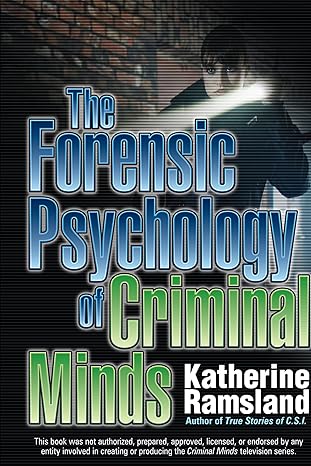
The Forensic Psychology of Criminal Minds

Forensic Psychology: A Very Short Introduction

Introduction to Forensic Psychology 2016
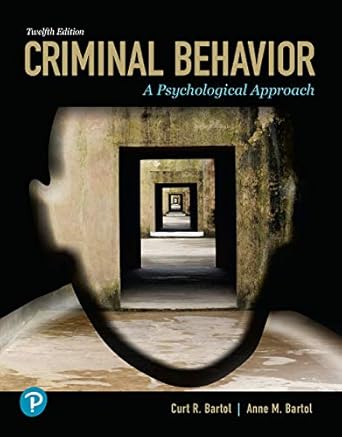
Criminal Behaviour: A Psychological Approach
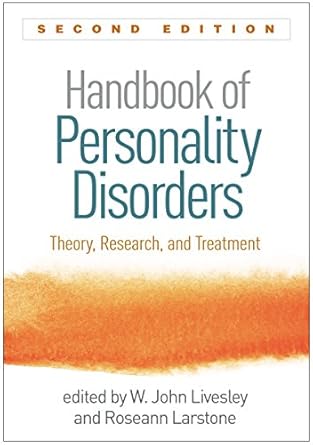
Handbook of Personality Disorders

The Handbook of Forensic Psychology 2017
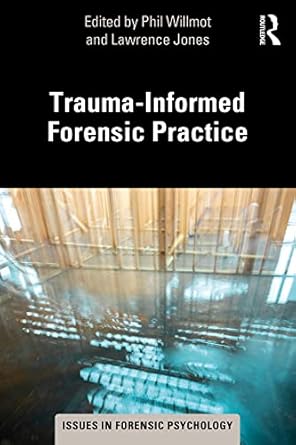
The Forensic Psychology of Trauma 2019
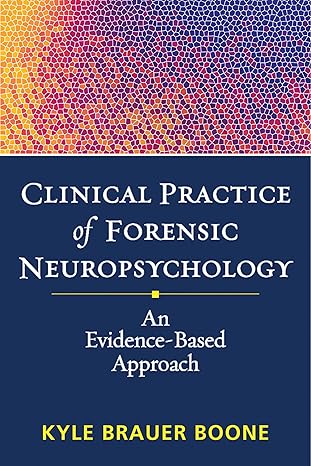
Clinical Practice of Forensic Neuropsychology
Recent Trends and Research Findings in Forensic Psychology
- Advancements in Neuropsychology: Neuroimaging and Brain Function: Recent studies using fMRI and other neuroimaging techniques have provided insights into the brain functions of offenders, helping to understand the neurological underpinnings of criminal behaviour. These advancements assist in identifying brain abnormalities that may contribute to criminal actions.
- Trauma-Informed Approaches: Impact of Childhood Trauma: There is increasing recognition of the role that childhood trauma plays in the development of criminal behaviour. Trauma-informed approaches are being integrated into forensic assessments and treatments to address the root causes of offending and support rehabilitation.
- Ethical and Legal Considerations: Digital Privacy and Cybersecurity: As forensic psychologists increasingly deal with digital evidence and online behaviours, issues of digital privacy and cybersecurity have become paramount. Ethical guidelines are being updated to address these new challenges.
- Applications of Artificial Intelligence: AI in Profiling and Prediction: Artificial Intelligence (AI) is being used to enhance criminal profiling and predict future criminal activities. AI algorithms analyse patterns and behaviours from vast amounts of data, aiding forensic psychologists in identifying potential threats more efficiently.
- Cultural Competency: There is a growing emphasis on cultural competence in forensic psychology. Research highlights the need for culturally sensitive assessments and interventions to ensure fair and effective treatment of individuals from diverse backgrounds.
Future Directions in Forensic Psychology
- Neurogenetic Research: Future research is expected to be deeper into the connections between genetics, brain structure, and criminal behaviour. Understanding how genetic predispositions interact with environmental factors will enhance forensic assessments and intervention strategies.
- Brain-Machine Interfaces: Developments in brain-machine interfaces may offer new ways to study and influence brain activity, potentially providing novel approaches to rehabilitation and treatment of offenders.
- Big Data and Machine Learning: The use of big data and machine learning will continue to revolutionise risk assessment and criminal profiling. By analysing large datasets, these technologies can identify subtle patterns and predictors of criminal behaviour, improving the accuracy of forensic evaluations.
- VR in Therapy and Training: Virtual Reality (VR) will play a larger role in both therapeutic settings and professional training. VR can create controlled, immersive environments for exposure therapy, role-playing scenarios, and courtroom simulations, enhancing the effectiveness of interventions and education.
- Restorative Justice Programs: There will be a growing focus on restorative justice, which emphasises repairing the harm caused by criminal behaviour through reconciliation between offenders and victims. Research will continue to explore the effectiveness of these programs in reducing recidivism and promoting community healing.
- International Collaboration: Increased international collaboration will lead to a better understanding of how cultural, social, and legal differences impact forensic psychology. Comparative studies will inform the development of culturally sensitive practices and global standards in forensic assessments.
Critical Challenges faced in Forensics Psychology
- Complex and High-Stakes Cases: Forensic psychologists often handle cases with significant emotional and legal implications, which can be stressful and require high levels of expertise and precision.
- Ethical Dilemmas: Balancing the ethical obligations of psychological practice with the demands of the legal system can create conflicts, particularly in maintaining objectivity while providing testimony.
- Dealing with Resistant Clients: Forensic psychologists often work with individuals who are court-ordered or unwilling to participate, making assessments and treatment more challenging due to resistance.
- Legal and Procedural Complexity: Navigating the intricate legal system and its requirements adds complexity to forensic work, demanding a thorough understanding of legal procedures and standards.
- Maintaining Objectivity: Ensuring impartiality in evaluations and testimony, despite personal beliefs or emotional responses, is crucial but can be challenging in emotionally charged cases.
FAQs
What advanced techniques are used in forensic psychological assessments?
Advanced techniques in forensic psychological assessments include neuropsychological testing, risk assessment instruments (such as the Hare Psychopathy Checklist), and structured clinical interviews. These methods help in evaluating complex issues like psychopathy, malingering, and the risk of future violence.
How do forensic psychologists evaluate the reliability of eyewitness testimony?
Forensic psychologists use research on memory and perception, along with specific assessment tools, to evaluate eyewitness testimony. They consider factors such as stress, duration of exposure, and suggestive questioning to determine the reliability of eyewitness accounts.
What role does forensic psychology play in understanding and treating juvenile offenders?
Forensic psychologists working with juvenile offenders assess developmental and psychological factors that influence offending behaviour. They use tailored interventions to address issues like trauma, cognitive development, and family dynamics, aiming to reduce recidivism and support rehabilitation.
How do forensic psychologists contribute to risk assessment and management for violent offenders?
Forensic psychologists use structured risk assessment tools, such as the Violence Risk Appraisal Guide (VRAG) or the Static-99, to evaluate the likelihood of future violence. They also develop management plans that include supervision strategies, treatment interventions, and monitoring to mitigate the risk.
What ethical dilemmas do forensic psychologists face in their work?
Forensic psychologists often encounter ethical dilemmas such as balancing confidentiality with the duty to report potential harm, managing dual roles (e.g., evaluator vs. therapist), and ensuring objectivity in their assessments and testimony. Navigating these challenges requires adherence to ethical guidelines and professional standards.
Conclusion
Forensic psychology plays an important role in bridging the gap between psychology and the legal system, offering valuable insights into criminal behaviour, mental competency, and legal decision-making. By applying psychological principles to legal contexts, forensic psychologists contribute significantly to criminal investigations, risk assessments, and legal proceedings. Despite its complexities and challenges, including ethical dilemmas and high-pressure cases, the field continues to evolve, enhancing our understanding of human behaviour in legal settings.
Reference
- [10] Yates, P. M., & Wessely, S. (Eds.). (2020). The psychology of criminal conduct. Routledge.
- [1] Bartol, C. R., & Bartol, A. M. (2020). Criminal behaviour: A psychological approach (11th ed.). Sage Publications.
- [2] Canter, D. V. (2018). Forensic psychology: A very short introduction. Oxford University Press.
- [3] Davies, G. M., & Beech, A. R. (Eds.). (2017). Forensic psychology: Crime, justice, law, and interventions. John Wiley & Sons.
- [4] Faust, D., & Ziskin, J. (Eds.). (2016). Evaluating competencies:Forensic assessments and instruments (2nd ed.). Oxford University Press.
- [5] Gacono, C. B. (Ed.). (2016). The clinical and forensic assessment of psychopathy: A practitioner’s guide. Routledge.
- [6] McCoy, K., & Goffin, K. (2019). Forensic psychology and the mental health system. Routledge.
- [7] Rogers, R. (Ed.). (2011). Clinical assessment of malingering and deception (4th ed.). Guilford Press.
- [8] Schreiber, S. (2018). The forensic psychology of trauma. Routledge.
- Weiner, I. B., & Otto, R. K. (Eds.). (2019). The Handbook of forensic [9] psychology (5th ed.). Wiley.
